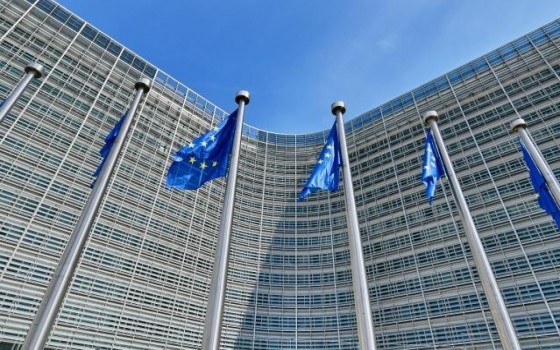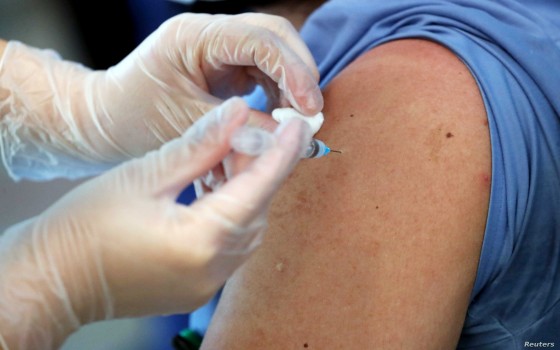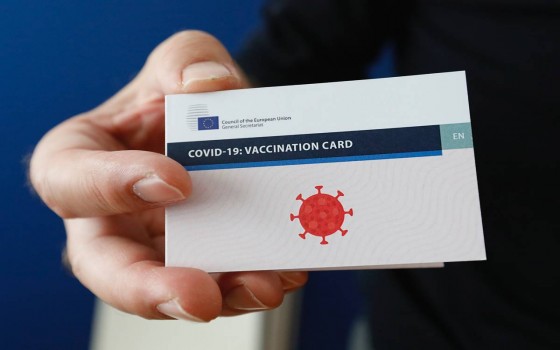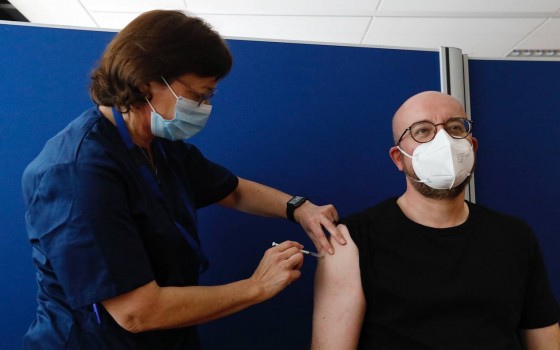
UNICEF on World Polio Day: The majority of infected children live in countries affected by conflict

- Europe and Arabs
- Thursday , 24 October 2024 10:5 AM GMT
New York: Europe and the Arabs
UNICEF reported that 85% of the 541 children infected with polio in 2023 worldwide live in 31 fragile and conflict-affected countries. This came in a study published by the UN agency on the occasion of World Polio Day. According to the UN daily news bulletin
According to UNICEF, polio cases in these countries have more than doubled over the past five years, while routine immunization rates for children have dropped from 75% to 70%, which is far below the 95% needed to achieve community immunity.
This data, according to UNICEF, represents a stark warning that this life-threatening disease is still spreading in areas where life is most fragile, where conflicts, natural disasters, humanitarian crises and other factors of instability hinder the provision of basic health care.
Dangers beyond bombs
“Children in conflict zones face more than just bombs and bullets,” said UNICEF Executive Director Catherine Russell. “They are at risk of contracting deadly diseases that should have been eliminated. In many countries, we are seeing healthcare systems collapse, water and sanitation infrastructure destroyed, and families displaced, leading to the resurgence of diseases like polio. Children are left paralyzed, unable to walk, play or go to school.”
A global decline in childhood immunization rates has also led to increased polio outbreaks, including in countries that had been polio-free for decades. This is particularly evident in conflict-affected areas, where 15 of the world’s 21 countries – including Afghanistan, the Democratic Republic of the Congo, Somalia, South Sudan and Yemen – are currently affected by polio.
Polio Outbreak Response Efforts
In recent months, UNICEF and its partners have stepped up their response to polio outbreaks. In Gaza, for example, UNICEF, in partnership with WHO, reached nearly 600,000 children under the age of 10 during the first round of polio vaccination in mid-September.
The second and final round was successfully implemented in southern and central Gaza, but renewed mass displacement and bombings delayed the operation in the north. This campaign comes after polio returned to Gaza for the first time in 25 years.
In Sudan, national immunization coverage has fallen from 85% before the war to 53% in 2023, while coverage in active conflict areas has fallen to just 30%. In response, UNICEF and partners have led two emergency polio vaccination campaigns in recent months, reaching 2.9 million children under five through house-to-house vaccinations.
Successful polio vaccination campaigns in fragile and conflict-affected countries are critical to stopping further cases and protecting children at risk. UNICEF stressed that humanitarian pauses are essential to ensure that health workers can reach children and deliver vaccines safely.
What is the role of governments?
The fight against polio is most difficult in the most challenging places, but eradication is within reach. UNICEF delivers more than 1 billion doses of polio vaccines each year – the largest share of global vaccine deliveries. The organization urged governments, partners and donors to:
Prioritize the immunization of all children against polio, especially in conflict and humanitarian crises and in countries with low immunization coverage across Africa and parts of Asia.
Strengthen immunization systems to ensure that all children receive essential, life-saving vaccines.
Protect humanitarian and health workers delivering vaccines, and respect the essential humanitarian pauses necessary for the campaign to succeed.
Provide essential resources to the Global Polio Eradication Initiative and the Global Alliance for Vaccines and Immunization (Gavi) to quickly stop the outbreak and ensure that children are immunized.
Highlight polio eradication on political agendas at all levels, prioritizing innovative solutions and coordinated actions to enhance the quality of immunization campaigns.
A Cross-Border Threat
The spread of polio not only puts children in affected countries at immediate risk, but also poses a growing threat to neighboring countries, said Catherine Russell. “Now is the time to act. We cannot rest until every child, in every corner of the world, is safe from polio.”
UNICEF is an international organization founded in 1946 to provide assistance and support to children who suffered as a result of World War II. When it was founded, UNICEF was called the United Nations International Children's Emergency Fund, and its name was changed to its current name in 1953. This organization is concerned with providing various aspects of care that children around the world need, such as health, education, nutrition, and others, especially in the least developed countries or in some emergency situations. In the field of health, for example, its role is to protect children from various diseases or even treat them from some of them, such as programs to protect against AIDS and prevent childhood diseases in general, in addition to what this organization provides in terms of funding to enhance health and educational services, as UNICEF receives its funding through many governmental and private sources distributed throughout the world, and New York City is considered the headquarters of this global organization that won the Nobel Peace Prize in 1965.












No Comments Found